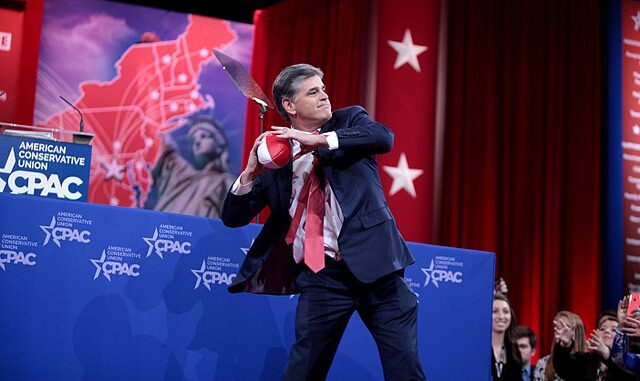
Zach Petroff | Opinions Editor
Sept. 29, 2022
As the midterm elections draw closer, political conversations are starting to heat up. All 435 seats of the House and 34 of the 100 Senate seats are opening up, which could drastically reshape the political landscape. Historically, midterm elections have less participation than presidential elections. But, given the hostile political climate, voters might be more apt to go to the polls on Nov. 8.
In this election, voters are faced with a vast cast of characters, spanning from a Heisman winner to a talk-show host turned conservative politician. As political discourse has become more colorful, so have the candidates.
Yet, as the divide between Americans keeps growing, there is at least one thing that Americans seem to agree on — their mistrust of the media.
Can you blame us?
With the constant barrage of political rhetoric blasted on almost every communicative medium, it can be hard to differentiate between what is accurate, what is propaganda and what is just blatantly false. While news reporting has always an element of subjectivity, the veil of being balanced is now being replaced with a much-more profitable model.
Internet sites that pose as news sites have been able to capitalize on political tribalism and have infiltrated social media platforms. Often looking and sounding like the news, these sites provide a one-sided look on issues that are much more opinion than they are news. Sites like Newsmax, which launched its own cable network in 2014, The Daily Caller and The Washington Examiner are looking to push an agenda rather than inform the people.
It’s a lot easier to get people angry than it is to get people to think.
The press has been considered the fourth branch of government used to keep those in power accountable and provide information to the people so they can make informed decisions. The same issues, however, that make people distrust the federal government are the same reasons that people have turned their backs on the media — lack of accountability and money.
The most-successful cable news network by far is the Fox News Channel, having reached $2.9 billion in revenue in 2020, according to the Pew Research Center. Fox News’ business plan uses the network to combine news segments with sensational editorials that seem to serve just one party. This technique makes it hard for viewers to differentiate between facts and opinions, giving pundits a sense of false credibility.
Fox News’ bias toward the right is apparent, and their viewers do not care. They look at Fox News as a counterbalance to a “liberal” media, thus justifying the organization leaning toward the Republican Party.
As for the non-conservative cable news outlets, their inability to match Fox News’ profits have led them to face a more sensitized form of journalism. They often hype up stories or over exaggerate various situations in a feeble attempt to get their aging viewers not to turn the channel to watch “Wheel of Fortune.”
Other major media outlets find themselves skirting the credibility line. In 2002 Judith Miller of the New York Times reported falsely about weapons of mass destruction in Iraq. Her reporting legitimized a false narrative that plunged the United States into one of its worst foreign policy endeavors ever.
The Washington Post is owned by billionaire Jeff Bezos, while Bloomberg News is owned by Michael Bloomberg, the wealthy, one-time presidential candidate who also served as mayor of New York City.
When elites own the news, they control the flow of information.
While the criticism about the media is justified, there is a lot of amazing journalism being done with ethical and moral considerations, yet the work receives low viewership due to being unread behind a paywall. Or, an organization can’t compete with the advertising budget of major news media outlets.
The problem with our news infrastructure in the United States is the economic model. The truth doesn’t sell, but preying upon raw emotion does. This country needs more non-commercial module that is driven by quality and isn’t for profit.
The United Kingdom, under the Secretary of State for Digital, Culture, Media and Sport fund the BBC — the world’s largest and oldest broadcaster by number of employees — through an annual television license fee. That fee is charged to all British households, companies and organizations using any type of equipment to receive or record live television broadcasts.
The U.S. could implement a hybrid model, which would allow news organizations to focus on actual news and not worry about competing for sensitized clicks, or being chained to their CEO, who might have skin in the game.
The American people are hurting for a news outlet that is honest, fair and free from profit-driven motives.

